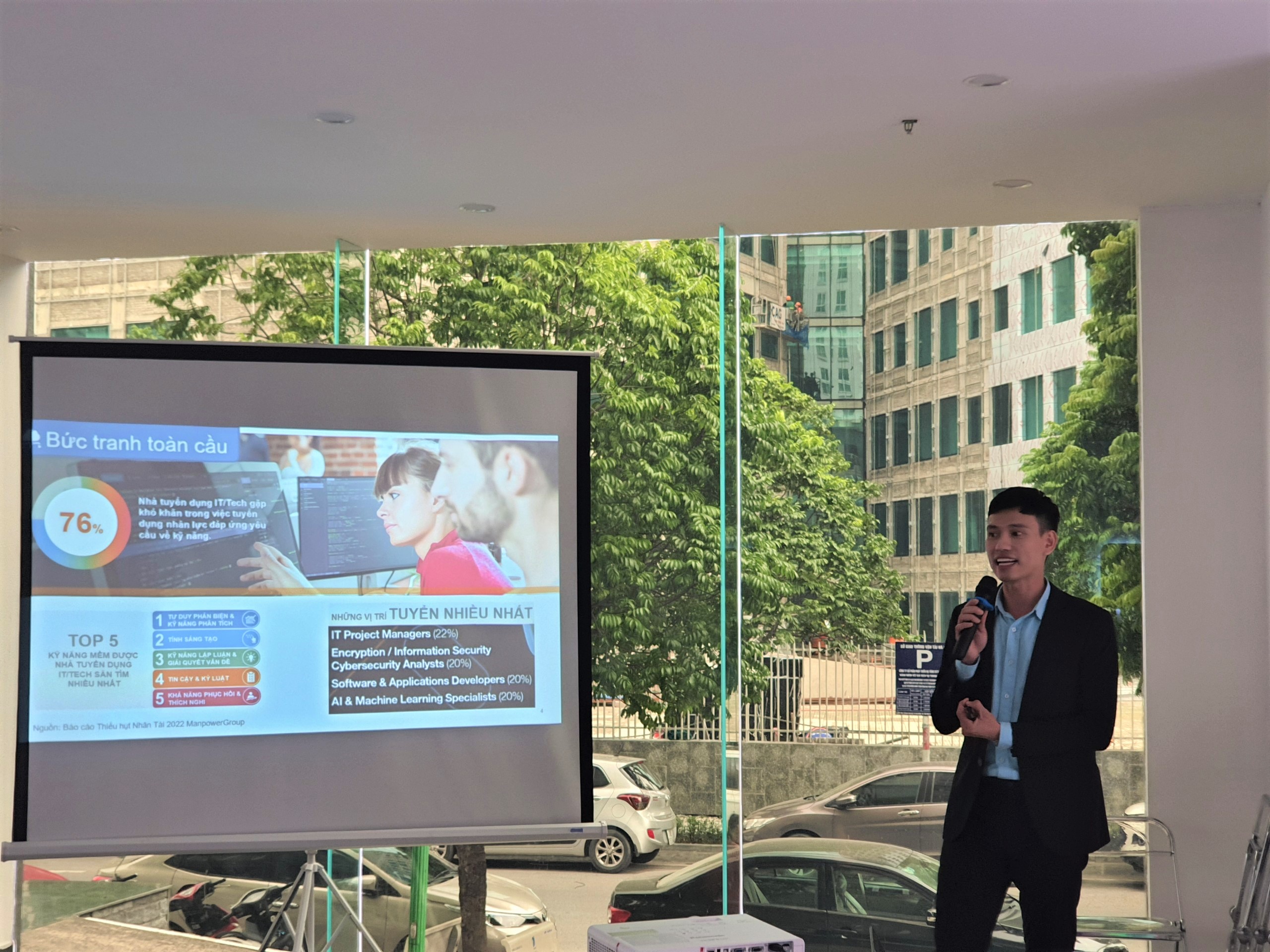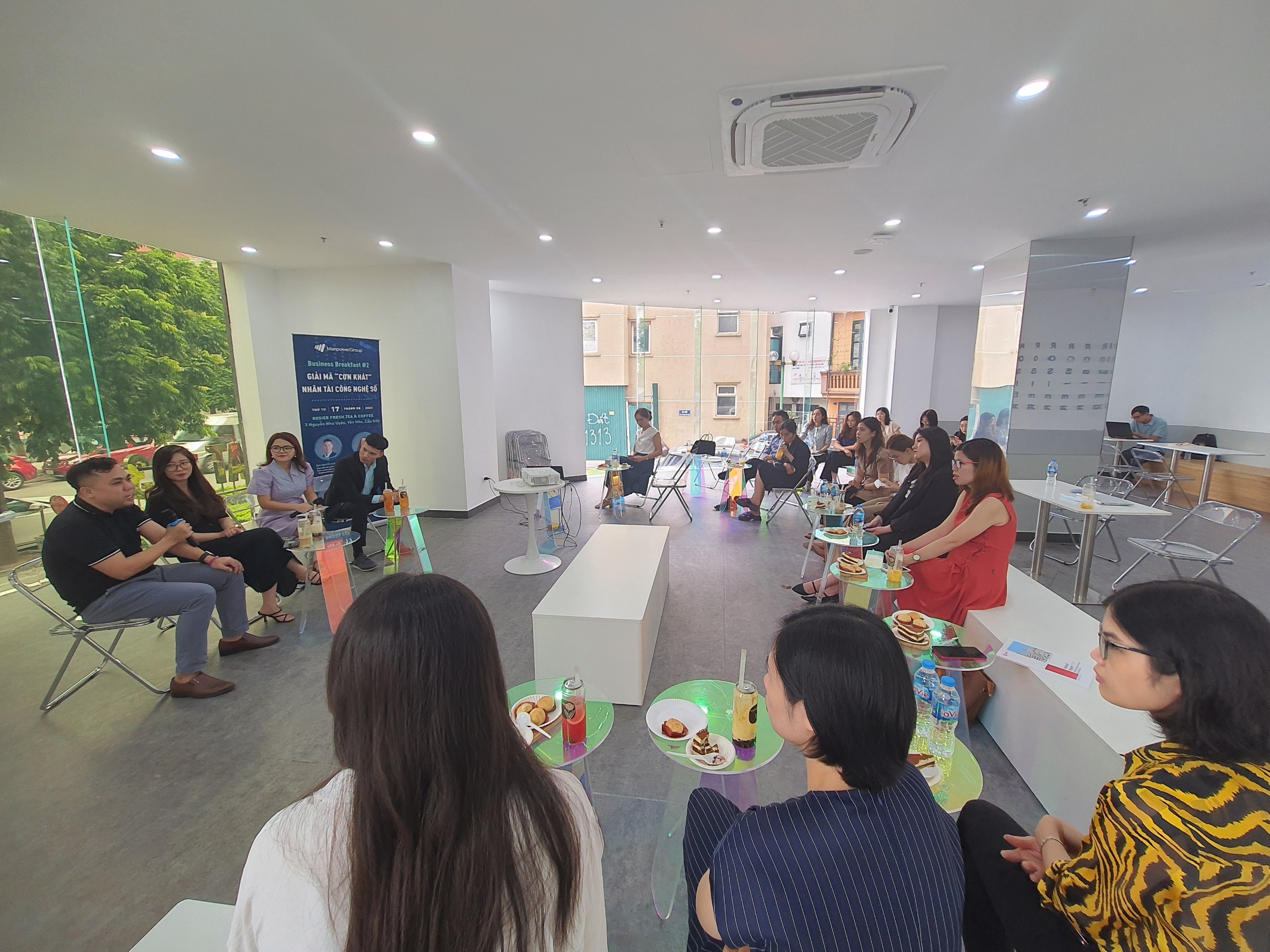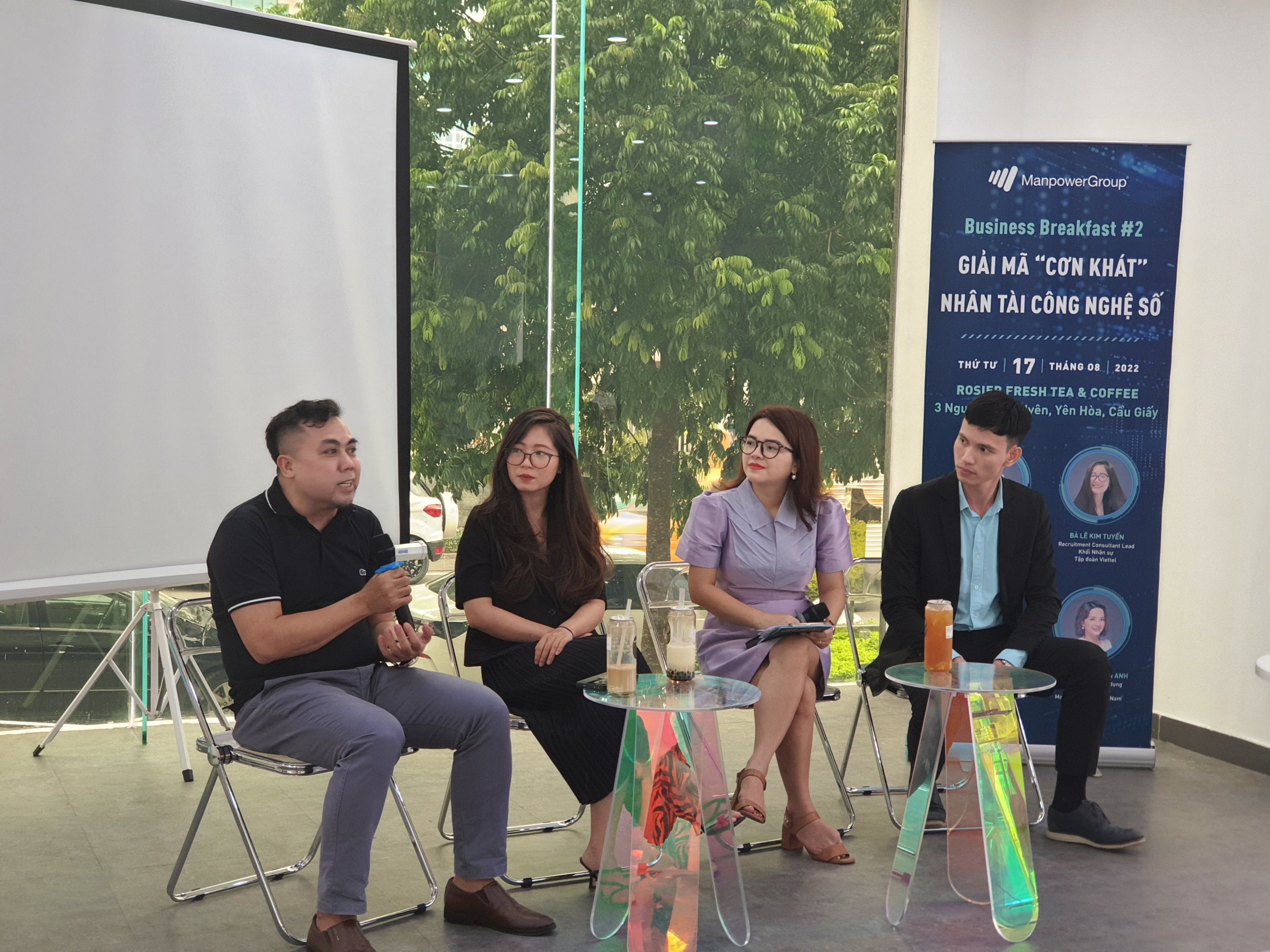On August 17 2022, Manpower Business Breakfast #2 with the topic “Satisfying the thirst for digital talent” took place in Hanoi. The event was aimed at reporting the current demand and challenges in digital technology talent recruitment, and sharing effective and practical solutions to the problem from leading companies and organizations. As an exclusive event for industry professionals, the Business Breakfast #2 saw the participation of HR managers and executives working at IT/Tech companies.

ManpowerGroup's Talent Shortage Survey 2022 has revealed a striking figure of the talent shortage in this field globally with up to 76% of employers have difficulty in recruiting workers meeting their requirements which include soft skills. Son Nguyen, Country Operation Manager, Staffing and Outsourcing service, ManpowerGroup Vietnam said: “Critical thinking, problem solving or adaptability are among top soft skills that IT & Technology employers are seeking.”
“Employers are increasingly willing to pay more in order to attract the interest of talent - many of our clients currently offer positions with salary from USD 3,000 per month. However, it seems that the offer can hardly be sufficient to attract the right talent.”

According to Son, the key for businesses to resolve the talent thirst in the age of technology starts from building internal recruitment capacity. Beside training and development programs, a working environment promoting diversity, equity, inclusion and belonging (DEIB) is necessary to approach diverse groups of talent. A report by ManpowerGroup revealed that talent outsourcing is an emerging HR solution for IT/Tech employers globally with approximately 50% enterprises are using this service.

Notably, ManpowerGroup Vietnam’s representative emphasized the importance of unlocking new sources of talent and look at workers’ potential instead of their available skillsets and qualifications. “Don’t merely care about candidates’ strong points. At work, enable your staff to join in different roles in projects or teamwork activities. It’s the way you can identify people’s hidden talent.”

“With a need to fill about 1,000 positions annually, Viettel also hasdifficulty in recruitment,” said Le Kim Tuyen, Recruitment Consultant Lead, HR Division, Viettel Group. As per her sharing, Viettel applies simultaneously BUY solution – looking for talent from the market and BUILD internal employees. Among which, BUY solution including training tech recruiters, having related departments involved in sourcing strategies, building employer branding, and cooperating with professional HR service providers – make up for 70% of their activities.
“Regarding our talent development activities, we consider direct approaching students via colleges/universities an effective way to attract the right talent”, said Tuyen.

Le Tan Hung, Lecturer cum Director of Innovation Center, School of Information and Communication Technology (SOICT), Hanoi University of Science and Technology (HUST) shared about the university’s practice of training students to catch up with technology development and meet requirements of businesses. “Given constantly changing technology, we only focus on training students to master fundamental knowledge and algorithms, while practicing analytical and problem-solving skills. We want our students to develop learnability, self-improvement and adaptability skills in different environments.”

SOICT – HUST currently develops a cooperation network with about 300 companies in ICT. Through an online system, businesses are allowed to register to host interns if they meet the specific requirements of the school, and students are also entitled to research and choose the businesses they want to join. This approach receives positive outcome when the percentage of students promoted to full-time positions after their internship is over 30% annually as compared with only 10% in the past, Mr Hung shared.

